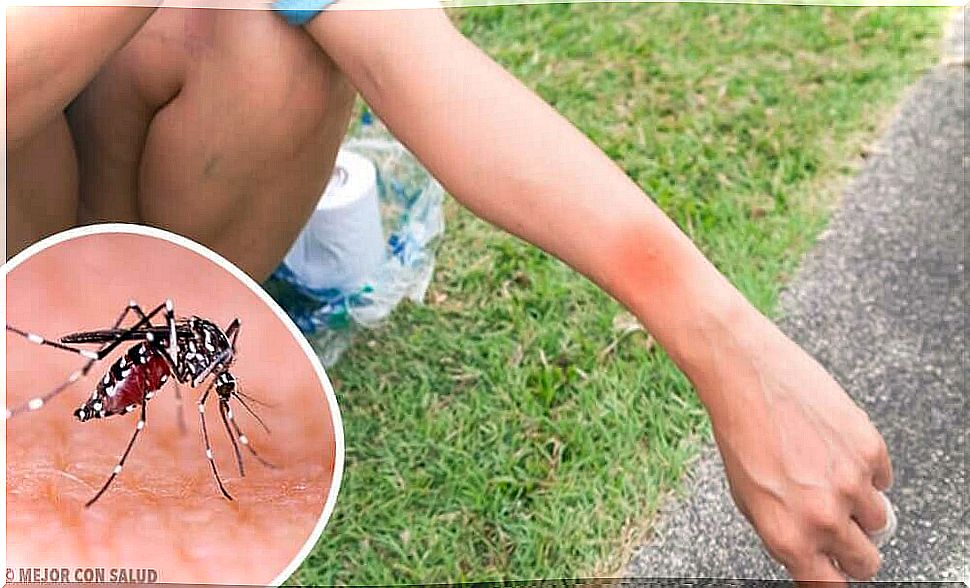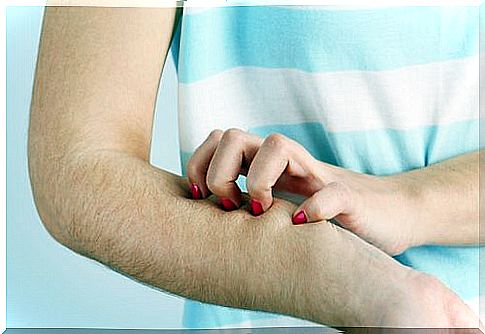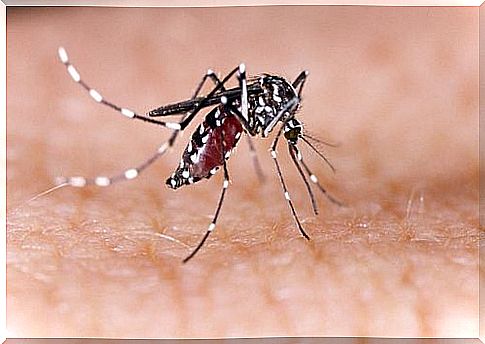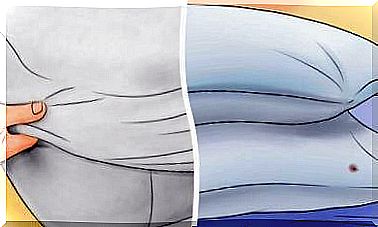What Happens When You Get A Mosquito Bite?

Scratching a mosquito bite may seem harmless, something you simply do without thinking twice. However, that action could have more consequences than you might realize…
Entomologists at the University of Florida define a mosquito bite as follows: the result of a female mosquito scanning the surface of your skin with her proboscis and finding a spot to start sucking blood. When the proboscis invades the skin, the mosquito releases its saliva under the skin.
A mosquito’s saliva contains certain proteins that your immune system will perceive as foreign substances. Therefore, your body will immediately react aggressively. The site of the bite then becomes inflamed and begins to itch.
The stinging sensation occurs when your skin releases a substance known as histamine. It helps fight potentially harmless substances, such as mosquito saliva.
Increased histamine production causes the blood vessels around the bite to swell, causing a bump to form. That also irritates the nerves and makes it more itchy.
This all normally happens a day or two after the bite. In addition to the itching, you can also get an allergic reaction or infection. Below we provide some more information to find out whether you are indeed suffering from something worse.
When is there more than just a mosquito bite?

If you start to feel tired after a mosquito bite and your body hurts, it is best to get checked out by a doctor. Only he or she can determine if it’s just a harmless bite or something that needs more attention.
Pay attention to complaints such as:
- Fatigue
- Fever
- General malaise
- Headache
- Result
- General discomfort
- strep throat
Why do mosquitoes bite people?

According to scientific sources, mosquitoes are able to detect the presence of a human at a distance of about 45 meters. They do this through the carbon dioxide you emit when you exhale. That signal stimulates their search for a blood meal.
Your breath will not lead a mosquito directly to you. However, it does make it easier for the mosquito to find potential blood meals. The mosquito follows the smell of carbon dioxide upwind to determine its origin. During the flight, the animal pays attention to the smell.
As the mosquito approaches, it evaluates all possible meals it encounters. If she finds no further clues that identify you as a human, she will keep looking until she finally finds a suitable source.
A mosquito may be able to detect you from 45 meters away, but it is only when it is a few meters away that it can effectively sense your body heat. That’s also when other factors start to come into play, such as humidity and odor.
Then the mosquito will look for a place on the surface of your body to land, such as the feet or ankles. If she’s about an inch from your skin, she’ll be able to determine with certainty that you’re human. Then begins getting ready to bite.
How can you try to prevent mosquito bites?

There are several options to help you avoid getting mosquito bites.
For example, certain biochemical repellents such as citronella are very effective. That’s because they don’t have the strong odor and unpleasant feel like other repellents, but would still work just as well.
A natural repellent such as eucalyptus oil with lemon may also work. However, such products are not recommended for children under three years of age.
Another good natural solution to fight pesky mosquitoes is a combination of several ingredients. If you add 5% DEET (N,N-diethyl-meta-toluenamide) to vanilla or citronella oil, you get a product that is said to last longer.









